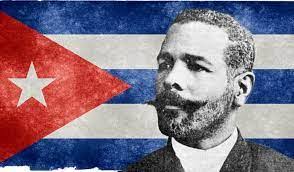
On December 7, 1896, Lieutenant General Antonio Maceo and his assistant Panchito Gómez Toro fell in combat in Punta Brava, when the invasion of the Liberation Army that took the war from East to the confines of Pinar del Rio, defeating in its path all the Spanish forces that opposed it and circumventing the trails with which Spain intended to prevent its advance.
There are numerous anecdotes that illustrate the greatness and courage of the distinguished patriot, who in the west of the country during the war that began in 1895, organized a network of agents at the service of the revolutionary cause. In this way, he was able to penetrate the office of Captain General Valeriano Weyler and learn military secrets of the Spanish army.
Recognized as a singular military strategist, he was distinguished at the same time by his manners, his restrained and courteous treatment at all times and under all circumstances.
He was the same for his peers in the hierarchy, as for his subordinates, which gives the measure of his simplicity. He never had a stridency, nor a bad-sounding phrase, and when he reprimanded it was done in a low voice and slowly, as if to be heard only by the person he was admonishing.
The Apostle José Martí was the contemporary of the Bronze Titan who most profoundly knew how to appraise him in all his magnitude when he said: “And what he says must be put to the point, because Maceo has as much strength in his mind as in his arm. (...) Firm is his thought and harmonious, like the lines of his skull.(...)" and when considering that the independence sentiment was saved by Maceo in his Baraguá Protest in 1878, which he considered "among the most glorious of our history ”.
In Maceo's ideal, anti-imperialism was also very clear, as he demonstrated before an interlocutor who envisioned the annexation as praiseworthy and replied: "I think, young man, although it seems impossible to me, that this would be the only case in which perhaps I would be I side with the Spanish” and wrote to a friend: “I don't expect anything from the Americans either; We must trust everything to our efforts; better to rise or fall without help than to incur debts of gratitude to so powerful a neighbor."
And despite being far from achieving the independence of his homeland, he also demonstrated his internationalist sentiment on June 6, 1884 in a letter to the Cuban patriot Anselmo Valdés: "(...) When Cuba is independent I will request permission to free Puerto Rico , because I would not like to lay down the sword, leaving that portion of America a slave.”
In 1989, 93 years after his fall in combat, the Lieutenant General was remembered in a very special way when the tradition of commemorating the date also began as Memorial Day in the wars of independence and internationalist missions.
That day the Tribute Operation culminated, which transferred to Cuba from Angola, Ethiopia, Nicaragua and other places, the remains of the Cuban combatants who fell in those lands, who were exhumed simultaneously in the municipalities of the country from where one day they left to fulfill with his duty.
Neither chance nor a simple montage of dates united forever the legacy of the Bronze Titan and the internationalism of the most recent history of the Cuban Revolution, which, according to Fidel in his speech for the Centennial of the War of the Ten Years, it was only one, the one started on October 10, 1868 by Carlos Manuel de Céspedes in the uprising in Demajagua.
On December 7, 1989, the international context was marked by the disappearance of European socialism and the USSR, which meant a kind of new Zanjón Pact, but this time on a world scale before the dominant forces of Yankee imperialism.
Then the legacy of the Bronze Titan became clear, very present in the Cuban people who continued the spirit of Baraguá, who also did not lower the flags of struggle.
That day, the Historical Leader of the Revolution, Fidel Castro, expressed when referring to those new mambises: “They died for internationalism. They died for Socialism. They died for the revolutionary and dignified Homeland that Cuba is today. We will know how to be able to follow his example! For them Eternal Glory!”




